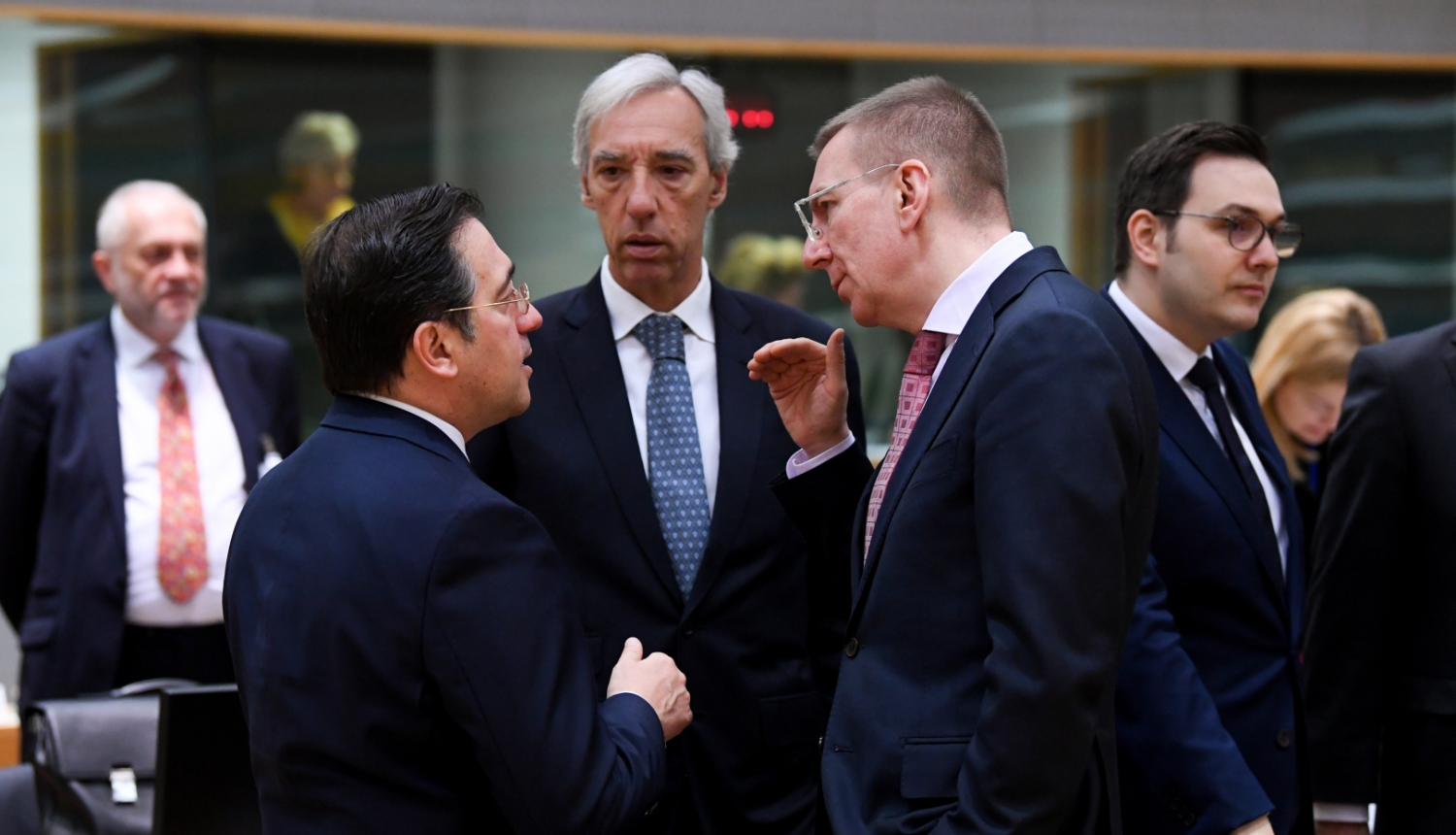On 20 February 2023, the Minister of Foreign Affairs of Latvia, Edgars Rinkēvičs, took part in the meeting of the Foreign Affairs Council of the European Union in Brussels, at which the EU Foreign Affairs Ministers discussed the Russian aggression against Ukraine, current developments in Afghanistan, and the climate and energy diplomacy.
The Minister expressed support for Ukraine’s peace initiative. Political, economic and diplomatic pressure against Russia must continue. “The sanctions adopted should be effectively implemented and their circumvention prevented. The sanctions adopted so far should be extended and new sanctions against Russia approved, including in the areas of finance, military industry, information technology, and the fight against propaganda. We believe that the European Union should revise the price cap for crude oil in March this year. Latvia’s interest lies in as low as possible price caps for crude oil, which would reduce Russia s income,” the Minister underlined.
According to the Foreign Minister, a Multi-agency Donor Coordination Platform in support of Ukraine should facilitate timely solutions to Ukraine’s reconstruction. It is therefore essential for the European Commission to ensure that Member States are involved in the work and decision-making of the platform. There must also be a common EU position on the mechanism for investigating into and prosecuting of the crime of aggression against Ukraine. Latvia supports the establishment of an International Centre for the Prosecution of the Crime of Aggression in Ukraine (IPCA), but with this alone we must not stop in our efforts to ensure Russia’s accountability for crimes of aggression.
During the meeting, EU Foreign Ministers met with the Deputy Prime Minister of Moldova, Minister of Foreign Affairs and European Integration, Nicu Popescu. The meeting addressed EU support for Moldova, progress on its path of reform, the consequences of the war waged by Russia in the region, as well as the establishment of an EU civilian mission in Moldova. The Latvian Foreign Minister expressed his conviction that the EU’s involvement in Moldova should continue to be as active as possible, as well as providing all forms of support to Moldova in its EU integration efforts, strengthening the country’s resilience and reducing Russia’s influence.
“Comprehensive and sustainable reforms in Moldova, including in the security sector, should be supported by establishing a European Union’s civilian mission in Moldova in order to strengthen its crisis management system, resilience and defence capabilities,” Edgars Rinkēvičs emphasised.




